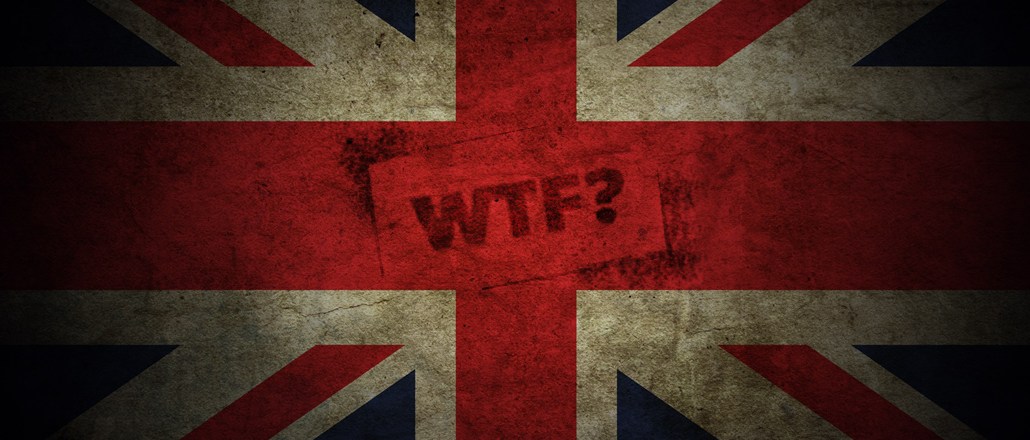
On Thursday, Britain made its choice.
The vote to leave the European Union prevailed by a razor-thin margin, dividing and shocking the country. Markets responded negatively, with the pound tumbling to its lowest since 1985, and prime minister David Cameron announcing he will pass on the baton to someone from the leave campaign.
The only certain thing now is that there will be plenty of uncertainty to come, while the U.K. figures out what happens next. Here’s a rundown of what Brexit could mean for the U.K. media industry.
With there be any immediate changes?
Not really, no. Negotiating the terms with which the U.K. exits — like setting up alternative trade deals — will take at least two to three years. During that time the U.K. will remain under the E.U.’s jurisdiction.
The U.K. will be at the table, but it won’t participate in shaping future E.U.-wide laws or deals that could affect the country — like the GDPR, the new European data laws that Brits will still have to comply with.
That doesn’t sound so bad.
Not so fast. The next few years will be mired with uncertainty, which is what has caused sterling to fall so steeply. And when there’s uncertainty, businesses become conservative, fewer jobs are created and people stop spending, risking a recession.
“The uncertainty is a huge problem,” said Nick Thomas, practice leader, digital media at consultancy firm Ovum. “Investors, advertisers and consumers don’t want to open their wallets, so it’s done huge damage already to the whole value chain.”
Thomas pointed out this uncertainty could make it tougher for newer forms and formats in media and advertising, as people will be more risk averse.
Like digital advertising?
Actually, the U.K.’s digital advertising market has a record of weathering austerity.
“After the financial crash in 2008, digital ad revenue was still growing 5.7 percent year-on-year,” said Yves Schwarzbart, acting head of regulatory affairs at the IAB. “Overall, the industry is in good health. We shouldn’t forget that it is a vibrant market.”
The T.V. market is looking less rosy, though, which could be a knee-jerk reaction to the uncertainty because it attracts a lot of budget.
“ITV’s share prices have been hammered,” noted Tal Smoller, European telecom and media analyst at Bloomberg Intelligence, adding that “TV will be hit quite hard. There’s the benefit of the European Championship which will keep it uplifted for a while. Beyond that there will be a slowdown in the medium term.”
What about the long term?
The longer-term concern is talent mobility. London has been a magnet for people of diverse skill sets from the E.U. and beyond, attracting programmers, data scientist, developers, all with talents needed in digital businesses, as well as creative talent and TV production.
The U.K. needs to invest in local talent as well as attract it from overseas, said Chris Combemale, CEO of the Direct Marketing Association. Basically, any stricter border control policy needs to allow for talent mobility.
What can businesses do to protect themselves?
It’s difficult for anyone to make many provisions before knowing what the scenario is. Combemale urged businesses to invest and plan for growth.
“Media businesses that take Brexit as an opportunity to pause will find that the world moves quickly around them,” he said. “Digital disruptors will transform major business models. Companies should continue to invest and evolve and modernize.”
So what happens next?
Rationality will prevail, says Ian Twinn, the public affairs director of the British advertising trade body ISBA. “In the end, businesses will be logical and rational; they will do the right thing to please consumers and be profitable,” he said. “Anyone saying irrational things is being too political.”
Yet, as economists and financial experts predicted, the pound is falling, causing one FT commenter to write that we are “living in a post-factual democracy.”
“This is deeply concerning because it proves that arguments are not influenced by fact or expertise,” said Ovum’s Thomas.
What this has thrown into stark relief is London’s opposition to the rest of the country. Notably, most of the leading ad agencies are based in the capital, whose job it is to communicate to the masses.
“When you’re in the business of selling to those people, you can’t help but ask, ‘How come we’ve got it so wrong?’” added Thomas. “Anyone in the information industry should be asking himself, ‘Do we understand this country anymore?’ There’s this grievance against an out-of-touch metropolitan elite. That should give us pause for thought.”
More in Marketing

Meta’s Threads expected to have ads this year
The move would make Threads Meta’s latest bit of ad real estate venue just over a year after its launch.

Mobile esports reaches new heights in 2024 with a boost from Saudi Arabian investment
Mobile esports activity has been picking up gradually since 2021, but 2024 could be one of the most lucrative years yet for the esports teams and players participating in popular mobile games such as “PUBG Mobile” and “Mobile Legends: Bang Bang” (MLBB).

Q1 ad rundown: there’s cautious optimism amid impending changes
The outlook for the rest of the year is a tale of two realities.





